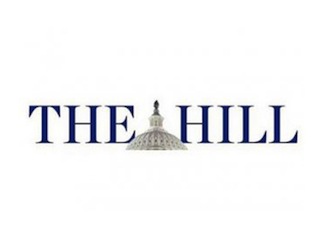Building the true foundations of democracy is a long-term process that involves so many tiny steps. When the international television cameras leave Baku, the Azerbaijani people and a handful of foreign helpers will remain to work on these small steps.”
“Fortunately, Azerbaijan is endowed with some of the key ingredients that enable it to continue building a strong democratic society: indigenous democratic traditions; a high educational level; devotion to secularism, moderation and mutual respect; remarkable economic development; and a pivotal position in East-West trade.
When Azerbaijan reclaimed its independence at the fall of the Soviet Union in 1991, it was able to recall a rich tradition of liberalization and reform. Early in the 19th century, Azerbaijani thinkers were articulating the need for secular education. As the Baku region thrived with the oil business later in the century, so did a group of reform-minded nationalist thinkers.
Their ideas were put into practice for two brief years after the overthrow of the czarist regime in Russia. From 1918 to 1920, the Azerbaijan Democratic Republic granted political rights to all citizens regardless of ethnic origin, religion, class, profession, or sex. Azerbaijan was the first Muslim country to enfranchise women, two years before the U.S. Regrettably, the 1920 Bolshevik invasion snuffed out Azerbaijan`s nascent democracy, subjecting it to Soviet rule for 70 years. Nonetheless, that brief experience with self-created democracy remains an inspiration to the democratic aspirations of contemporary Azerbaijanis.”
“Today, education—formal and informal—could lay the cornerstone of democracy. Azerbaijan boasts a 99.8 percent literacy rate; however, it does not rest there. During the past decade, spending on education has increased five-fold. And the government`s report, Azerbaijan 2020: A Vision into the Future is a roadmap to bring Azerbaijani education into line with West European standards. Moreover, the government is very much aware of the vital role that education plays in discouraging radicalism. Finally, Azerbaijan recognizes the value of exposing its most promising young people to formal education abroad. Recently, the State Oil Fund, a sovereign wealth fund founded by the late President Heydar Aliyev, allocated $78 million to fund such scholarships.”
“Such a hefty investment in education is possible because over the last decade, Azerbaijan has posted an average 12.6 percent in GDP growth, according to the International Monetary Fund. The IMF estimates 4.5 percent growth in 2013 and, perhaps more important, 9 percent growth in non-oil sectors.
Dedication to improving formal education goes hand-in-hand with the informal education that young Azerbaijanis receive from being at the fulcrum of a vital communications corridor that runs to China in the East and as far as Houston in the West. Baku is a vibrant, cosmopolitan city, hosting thousands of foreign workers and visitors each year. A ship at the Baku International Sea Trade Port could be offloading wheat grown in Kazakhstan, bound for Istanbul or North Africa. At a nearby pier, longshoremen may be loading vital supplies for NATO forces in Afghanistan. In the cafeteria at the Sangachal Terminal, Azerbaijani oil workers may be lunching with counterparts from Scotland and Norway. Meanwhile, some Azerbaijani military personnel serve alongside NATO forces in Afghanistan while others head to Romania for an exercise with U.S. Marines.
Some of these examples should also serve as a reminder to Americans that Azerbaijan is an important security partner and that the South Caucasus East-West Corridor that it straddles is vital to US security.”
More about:















































